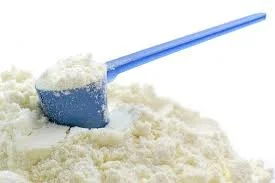International Breastfeeding Month 2020
As International Breastfeeding Month comes to a close, I really wanted to take some time to reflect on all that this month entails. I’d like to start with a little side note, that I fully recognize that not all people can body feed (or choose not to) and I both understand and respect that.
Environmental Impacts
This year the theme is “World Breastfeeding”. In short, how breastfeeding impacts the environment, carbon footprints and sustainability. Breastmilk is the most environmentally-friendly food in the world. It produces zero waste, zero greenhouse gasses and has a zero water footprint. Formula on the other hand requires farming, storage, pasteurization, drying, cooling, packing and shipping. Plus the impact of farming the cows to get the milk, and a kilogram of powdered formula needs roughly 4,000 liters of water to be made. As for our landfills, a 2009 study showed that 550 million infant formula cans (equaling an astounding 450,000 tons) end up there every year. The last piece of this particular puzzle is the bottles needed to actually give formula. After tons of searching online, I couldn’t even find actual statistics of how many bottles end up in landfills every year, or the greenhouse gasses from the making of them without hitting a paywall. All of this still goes without diving into the questions on the actual safety of plastic bottles.
Economic Impacts
Powdered Infant Formula
While there are tons of “add-ons” that can be bought to aid breastfeeding (think feeding pillows, nipple creams, nipple shields etc.), one can breastfeed successfully without any of these things. The economic impact on families (and the government through WIC) are astronomical when formula feeding. Formula costs families between $800 and $2800 a year, depending on the brand of formula. These numbers do not include the cost of bottles which adds another $100-$200 per year. To safely bottle feed we also need distilled water which will cost between $0.99 and $3.00 depending on the brand. It’s important to remember that not only is this expensive for anyone, but there is a large population that doesn’t even have access to these things to make bottle feeding safe. Of course when washing more things, our water bills go up too. Worth note: in 2007 the formula industry made $3.5billion in sales.
Health Impacts
It may feel like we’ve all heard what the health impacts are for body feeding, but lets dive into them again. The American Academy of Pediatrics (AAP) have the following listed as health benefits for baby:
Protection Against:
bacteremia
diarrhea
respiratory tract infection
necrotizing enterocolitis
otitis media (middle ear infection)
urinary tract infection
late-onset sepsis in preterm infants
type 1 and type 2 diabetes
lymphoma, leukemia, and Hodgkins disease
They also list the following as health benefits for the lactating person:
decreased postpartum bleeding and more rapid uterine involution
decreased menstrual blood loss and increased child spacing (lactational amenorrhea)
earlier return to pre-pregnancy weight
decreased risk of breast and ovarian cancers
According to some sleep experts, babies who are formula fed may sleep longer in the early months. This is because their bodies have to work harder/longer to digest formula than human milk. But overall, in the first year, there is no difference in the amount of hours the two sleep.
Impacts on Mental Health
For me personally, having formula fed one child and breastfed the other two, I mostly remember the mental differences, and relationship differences. I had a very hard time bonding with my bottle fed baby and ultimately ended up suffering with postpartum depression (PPD). According to the National Center for Biotechnological Information, there is continued research on these links. While PPD leads to lower chances of breastfeeding, it goes both ways. Studies suggest that not breastfeeding can lead to a higher risk of PPD. In birthing people who chest-feed, they report reductions in anxiety, negative moods and overall stress. In infants, breastfeeding impacts their literal brain. Toddlers (ages 14-18 months) who were exclusively breastfed for at least six months seem to have better memories, early language and motor skills, and seem to continue for many years. One prolonged study on adults (aged 20 to 40) showed that greater amounts of aggressive behavior were more common is those who were not breastfed as infants as compared to those who were.
One of the best known impacts psychologically of breastfeeding is the bonding aspect. Put into layman’s terms, those who chest-feed can better recognize their infants cries and respond more positively to them. These effects last for about the first year, after which there is no difference to be found between those who were body-fed and those who were bottle-fed.
While breastfeeding rates seem to be increasing all over the world, there remains some concern. In a 2017 report from the World Health Organization (WHO) and the United Nations International Children’s Emergency Find (UNICEF) reveals that not one single country in the entire world meets the minimum recommended support for breastfeeding.
While all of these things are true and evidence based, it’s also true that there are always exceptions and extenuating circumstances. All of our birth | Fort Worth doulas are trained in breastfeeding basics, inclusivity for our LGBTQ+ clients, and understanding for “non-nuclear” families (such as those who have grown their family through surrogacy and adoption). Chelsea (our infant feeding specialist) can help with body-feeding, bottle-feeding, pumping and everything in between. Let’s have a conversation around feeding that’s healthy and non-judgmental.
At the end of the day, we’re always here for you and YOUR best birth.
Much Love-
Chelsea K.
Infant Feeding Specialist, Postpartum Doula
Sources:
https://www.sciencealert.com/no-one-is-talking-about-the-environmental-impacts-of-the-baby- formula-industry
https://www.citizen.org/article/the-dollars-and-cents-of-infant-formula-marketing/ https://www.sciencedaily.com/releases/2019/10/191002183657.htm https://www.waba.org.my/resources/activitysheet/acsh1.htm https://www.investopedia.com/articles/pf/08/budgeting-for-baby.asp https://www.seattlechildrens.org/conditions/a-z/bottle-feeding-formula-questions/ https://www.aap.org/en-us/advocacy-and-policy/aap-health-initiatives/Breastfeeding/Pages/Benefits- of-Breastfeeding.aspx
https://www.sleep.org/breastfeeding-vs-bottle-sleep/ https://www.ncbi.nlm.nih.gov/pmc/articles/PMC6096620/ https://www.ncbi.nlm.nih.gov/pmc/articles/PMC4842365/


